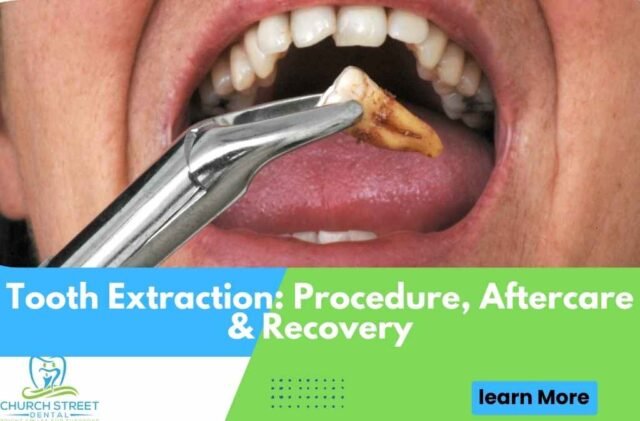Dental implants are a revolutionary solution for replacing missing teeth, offering improved comfort, function, and aesthetics compared to traditional alternatives like dentures and bridges. However, undergoing dental implant surgery is a significant procedure that requires thoughtful preparation. Knowing how to prepare for dental implant surgery is essential to ensure a smooth and successful experience. In this comprehensive guide, we’ll walk you through everything you need to know about preparing for your surgery, from the consultation to recovery and long-term care. If you are considering dental implants or have already scheduled your surgery, this guide will help you feel more confident and prepared. Let’s dive into the steps and tips for a successful dental implant experience.
What Are Dental Implants?
Before discussing how to prepare for dental implant surgery, it’s essential to understand what dental implants are and how they work. A dental implant is a titanium post that is surgically placed into your jawbone, acting as the root of a missing tooth. Once integrated with the bone, a crown, bridge, or denture is placed on top of the implant, restoring the function and appearance of your teeth. Unlike traditional dentures or bridges, dental implants are a permanent solution that provides better stability, comfort, and durability. They also help preserve bone density and maintain the integrity of surrounding teeth. Implants are ideal for people who have lost one or more teeth due to injury, decay, or other dental issues.
Why Consider Dental Implants?
Dental implants offer a wide range of benefits for those who need to replace missing or damaged teeth. Here are some of the key advantages of choosing dental implants:
- Improved Functionality: Dental implants work just like natural teeth, allowing you to eat, speak, and smile with confidence.
- Durability: Implants are made of titanium, which is strong and durable, ensuring they can last a lifetime with proper care.
- Aesthetic Appeal: Implants are designed to look and feel like natural teeth, offering a seamless appearance.
- Bone Preservation: Unlike dentures, dental implants stimulate the jawbone, preventing bone loss and maintaining facial structure.
- Long-Term Solution: Unlike bridges or dentures, implants are a permanent solution, eliminating the need for replacements or adjustments over time.
Given these advantages, dental implants are a highly recommended solution for many people. However, before proceeding with surgery, proper preparation is critical to ensure the best possible results.
Steps to Prepare for Dental Implant Surgery
Dental implant surgery is a multi-step process that begins well before the actual surgery itself. Proper preparation can help minimize risks and complications, leading to a smoother recovery. Here’s a detailed breakdown of the preparation process:
Schedule a Consultation with Your Dentist or Oral Surgeon
The first step in preparing for dental implant surgery is to schedule a consultation with a qualified dentist or oral surgeon. During this initial appointment, your dentist will evaluate your overall oral health and determine if you’re a good candidate for dental implants. This consultation typically includes:
- Medical History Review: Your dentist will ask about your health history, including any medical conditions (e.g., diabetes, heart disease), medications, or allergies that might impact your surgery.
- Oral Health Assessment: The dentist will examine your gums, teeth, and jawbone to ensure there’s enough healthy bone tissue to support the implant.
- X-Rays and Imaging: Your dentist may take X-rays or use 3D imaging to create a detailed picture of your jawbone and surrounding structures. This helps the dentist assess the quality and quantity of bone available for the implant.
- Discussion of Expectations: Your dentist will discuss the entire procedure with you, outlining the expected results, potential risks, and benefits. They will also answer any questions you may have about the surgery and recovery.
This consultation is an essential part of the process, as it allows your dentist to develop a personalized treatment plan tailored to your specific needs.
Choose the Right Type of Implant
Not all dental implants are the same. There are different types of implants that can be used depending on your needs. The most common types include:
- Endosteal Implants: These are the most frequently used type of dental implant. They are placed directly into the jawbone and are suitable for patients with enough bone density.
- Subperiosteal Implants: These implants are placed under the gum tissue but above the jawbone. They are often used for patients who have insufficient bone height or density.
- Zygomatic Implants: These are a less common type of implant that is placed into the cheekbone when there is not enough bone in the upper jaw to support traditional implants.
Your dentist will help you choose the right implant based on your bone structure, the location of the missing tooth, and your overall dental health.
Pre-Surgical Instructions
Once you’ve decided to proceed with dental implants, your dentist will provide you with pre-surgical instructions to ensure the procedure goes as smoothly as possible. These may include:
- Antibiotics: Your dentist may prescribe antibiotics to reduce the risk of infection before and after surgery. It’s important to take these as instructed.
- Pain Management: Depending on the complexity of the procedure, your dentist may recommend over-the-counter pain relievers or prescribe stronger pain medications to manage discomfort after surgery.
- Avoid Smoking and Alcohol: Smoking and alcohol can impair healing, so it’s advisable to refrain from smoking and drinking for at least a few days before and after surgery.
- Fasting Instructions: If you are receiving sedation or general anesthesia, you may be instructed to avoid eating or drinking for several hours before the surgery.
- Arrange Transportation: If you’re receiving sedation or general anesthesia, make sure you have someone to drive you home after the procedure. You will not be able to drive yourself.
Plan for the Day of Surgery
The day of your dental implant surgery can be nerve-wracking, but knowing what to expect will help reduce anxiety. On the day of surgery, here’s what you can expect:
- Arrive Early: Arrive at the dentist’s office on time to complete any necessary paperwork and prepare for the procedure.
- Anesthesia or Sedation: Depending on your preference and the complexity of the surgery, your dentist will administer local anesthesia to numb the surgical site or offer sedation to help you relax.
- The Surgical Procedure: The procedure itself typically takes 1-2 hours per implant. Your dentist will make an incision in the gum tissue, place the titanium implant into the jawbone, and close the incision with stitches.
- Post-Op Care: After the surgery, you will be given post-operative instructions to help manage pain and swelling.
Post-Surgical Care and Recovery
The recovery process after dental implant surgery can take several months, but it is typically manageable with proper care. After your surgery, you’ll need to follow your dentist’s post-operative instructions to promote healing and avoid complications. Here’s what to expect during recovery:
- Swelling and Bruising: Some swelling, bruising, and discomfort are common immediately after surgery. Ice packs and pain medications can help manage these symptoms.
- Diet Restrictions: Stick to a soft-food diet for a few days to avoid placing pressure on the surgical site. Avoid chewing on the implant side of your mouth until your dentist gives you the go-ahead.
- Oral Hygiene: Keep your mouth clean by gently brushing your teeth, but avoid brushing directly on the implant site until it’s fully healed.
- Follow-Up Appointments: You’ll need to attend follow-up appointments with your dentist to monitor the healing process. These visits may include X-rays to check if the implant is properly integrating with the bone.
Long-Term Care and Maintenance
Once your dental implant has fully integrated with your jawbone, you’ll have a permanent, durable solution for missing teeth. To ensure the longevity of your implant, it’s important to practice good oral hygiene and attend regular dental check-ups. Here are some tips for maintaining your implants:
- Brush and Floss Regularly: Brush your implants at least twice a day and floss daily to keep the area clean and prevent infection.
- Avoid Hard Foods: While dental implants are strong, it’s a good idea to avoid chewing on hard objects like ice, nuts, or hard candies.
- Quit Smoking: Smoking can increase the risk of implant failure and gum disease, so quitting is crucial for the long-term success of your implants.
- Regular Dental Visits: Attend regular dental check-ups to monitor the health of your implants and surrounding gums. Your dentist will ensure everything is functioning properly and address any concerns.
What to Expect in Terms of Healing Time
The healing process for dental implants varies depending on several factors, including your bone health, the type of implant, and the number of implants being placed. On average, the recovery timeline looks like this:
- Immediate Post-Op: Swelling and discomfort are common in the first few days, but these symptoms should subside with proper care.
- 1-2 Weeks: After the first few days, most of the discomfort will subside, and you can return to your normal activities. You may still need to avoid hard foods and sticky substances.
- 3-6 Months: The titanium implant will need time to fuse with your jawbone in a process called osseointegration. This typically takes several months. During this time, you may wear a temporary crown or denture.
- Final Restoration: Once the implant has successfully integrated with the bone, your dentist will place the permanent crown or other restoration, completing the process.
Learn More: Dental Implant in Chicopee, MA
Conclusion
Dental implant surgery can be a life-changing procedure that restores your smile and improves your quality of life. By following the steps outlined in this guide and working closely with your dentist, you can ensure a smooth preparation process and successful recovery. If you’re in need of expert care, Church Street Dental is here to help. Located in Chicopee, MA, we specialize in dental implants and offer comprehensive care to make your dental implant journey as comfortable as possible.
To schedule a consultation or learn more about dental implants, contact us today at Church Street Dental – your trusted Dentist in Chicopee, MA. Let us help you achieve the smile you’ve always wanted.






